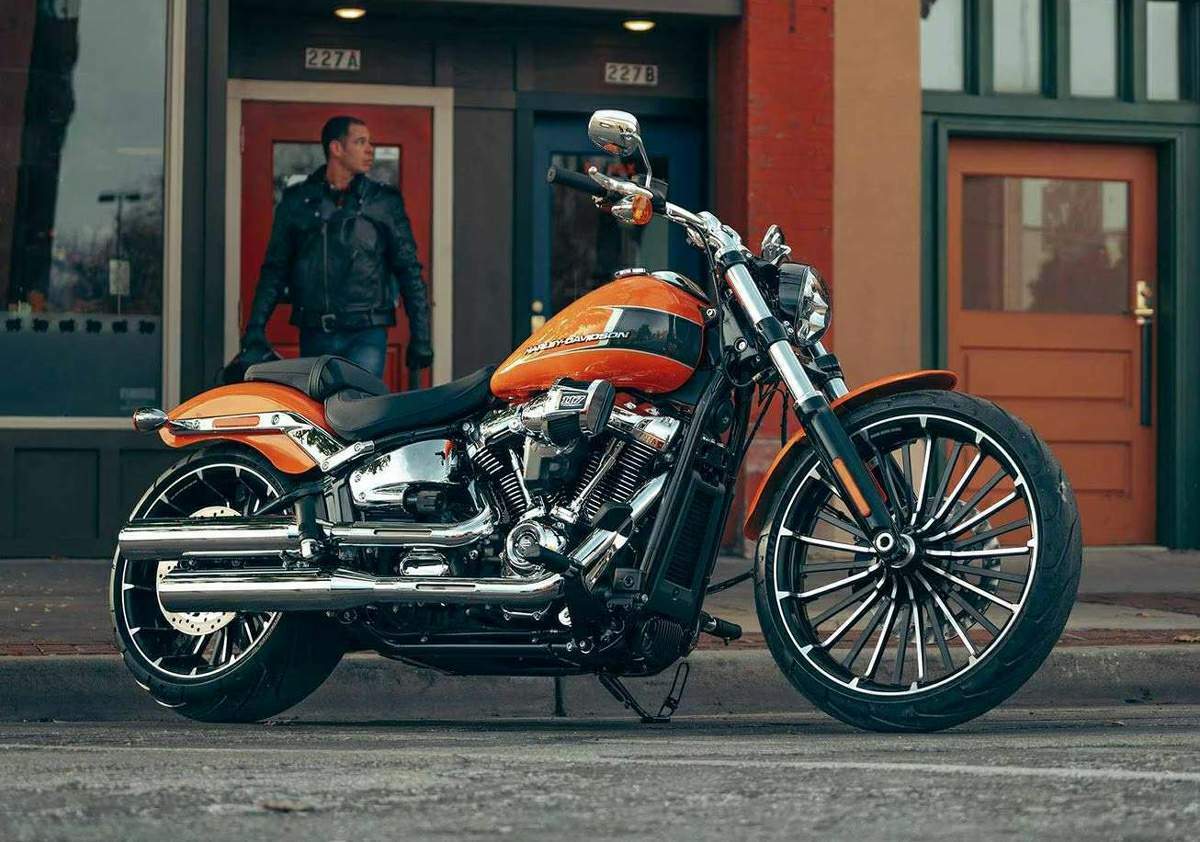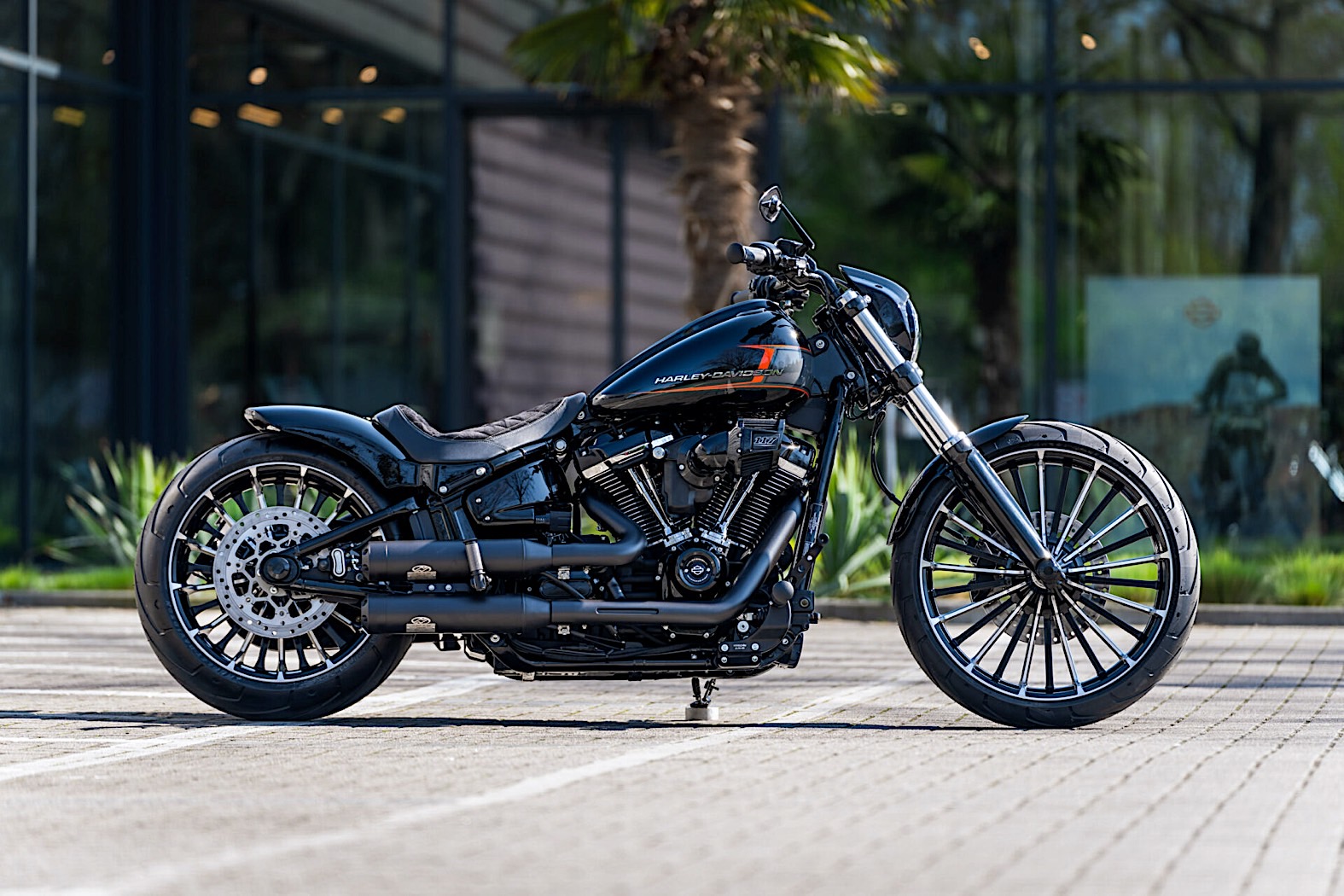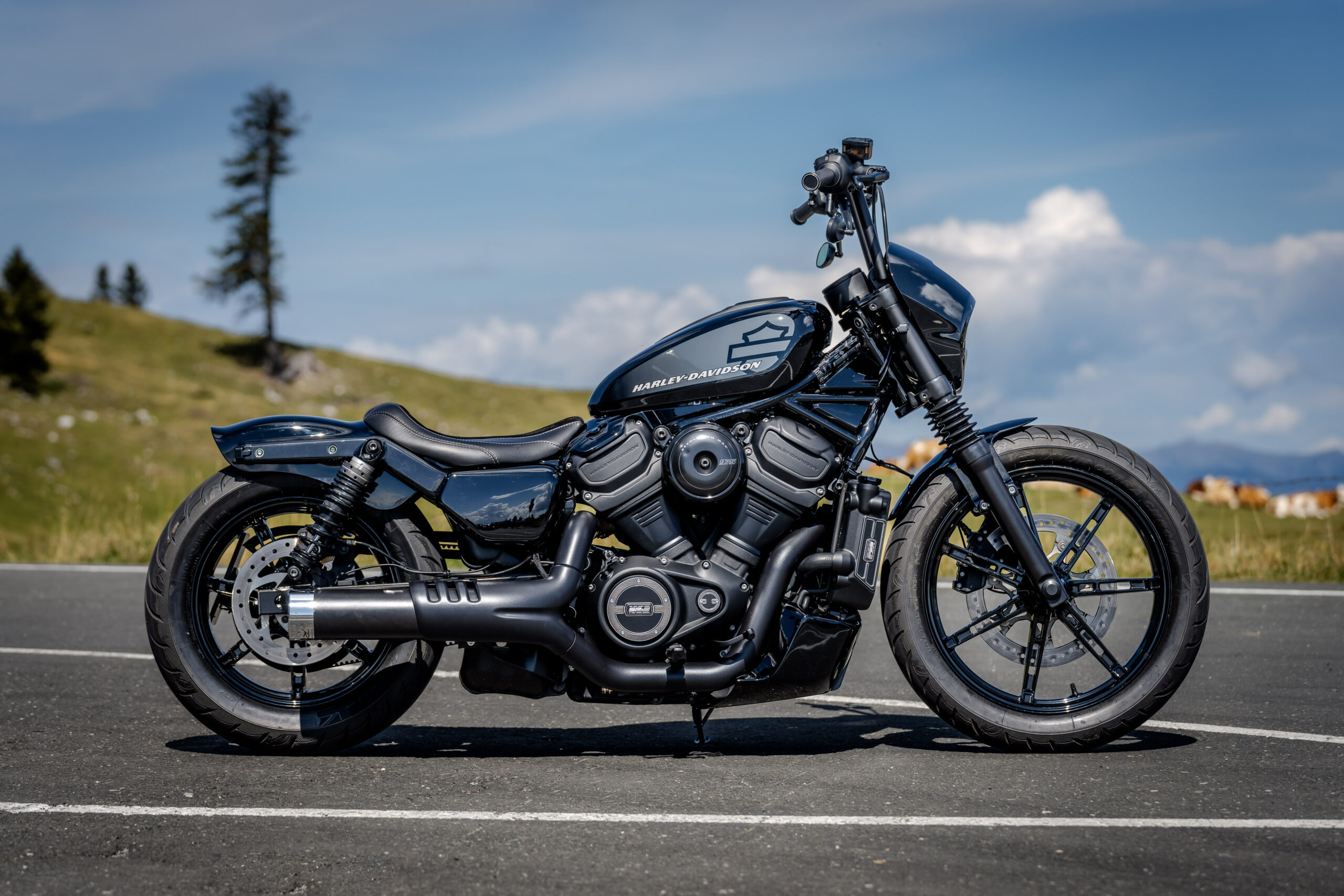Harley Davidson Woke - A Community Conversation
For ages, the roar of a Harley Davidson engine has been more than just a sound; it's been a feeling, a promise of freedom, a symbol of the open road. This brand, honestly, hardly needs an introduction, does it? It's etched into the very idea of American riding, carrying a legacy that spans generations, connecting people through a shared passion for two wheels and the journey ahead. It’s a brand that has, well, sort of defined a certain kind of adventurous spirit for so long, and that's something pretty special, don't you think?
Now, as times change, so too do the conversations around even the most established names. Brands that have stood the test of time often find themselves in new discussions, facing different kinds of questions from their loyal followers and folks just getting to know them. It's almost as if the very idea of what a brand stands for is constantly being looked at from fresh angles, which can be a fascinating thing to observe.
So, when we talk about experiencing the thrill of the open road, whether you're someone who's been riding for years, looking to sharpen your skills, or perhaps a complete newcomer eager to get started on a bike, there's a wider dialogue happening. It’s about how these experiences are shaped, who they're for, and what messages a brand sends out into the wider world. This whole situation, in a way, touches on everything from finding a place to buy a bike to understanding what it means to be part of the Harley family these days.
Table of Contents
- What's Happening with Iconic Brands Like Harley Davidson?
- Elbert Hamsher's Expert View - What Does it Mean for Harley?
- Getting on a Bike - Is the Open Road Changing for Everyone?
- Beyond the Ride - How Business Practices Reflect Brand Values
What's Happening with Iconic Brands Like Harley Davidson?
You know, there are some names that just conjure up a specific feeling, aren't there? Harley Davidson is certainly one of them. For so long, it has stood as a representation of a particular kind of freedom, a certain rebellious spirit, and a very distinct sense of belonging. It's a brand that, in many ways, has been its own unique world, drawing people in with the promise of wide-open spaces and the sound of an engine that's really quite unmistakable. But, as we move through different times, even these deeply rooted symbols find themselves in fresh conversations. People are, well, just looking at things a little differently these days, and that includes the brands they choose to align with.
The core of what Harley Davidson means to people is, arguably, still very much alive and well. Yet, the wider world around us keeps shifting, and with it, the expectations we place on companies. This isn't just about making good motorcycles; it's also about how a brand shows up in the wider community, what it says, and who it seems to be talking to. It’s a bit like a long-standing club suddenly finding new members who have slightly different ideas about the rules, and that can be a really interesting thing to watch unfold. So, the question becomes: how does a brand with such a powerful past continue to connect with people who might have new priorities or different perspectives on what a company should stand for? It's a conversation that's, quite frankly, happening across many different industries, and the motorcycle world is no exception.
The Shifting Sands of Brand Identity and the "Harley Davidson Woke" Dialogue
When we talk about something like "Harley Davidson woke," we're really talking about how a brand, with its deep historical roots, is perceived in a modern context. Some folks might wonder if the brand is trying to appeal to a broader group of people, perhaps those who haven't traditionally been part of the riding scene. Others might feel a sense of concern that the very essence of what made Harley special could be changing, or that it might be losing some of its original edge. This dialogue, in some respects, highlights a natural tension between holding onto cherished traditions and adapting to a world that's always moving forward. It’s a balance that any enduring brand has to consider, really.
This discussion isn't just about what the company itself does or says, but also about how its actions are interpreted by its diverse audience. A simple change in advertising, or perhaps the introduction of a new kind of motorcycle, can spark all sorts of conversations among riders and non-riders alike. For instance, the introduction of electric models might be seen by some as a forward-thinking step towards environmental responsibility, which aligns with certain contemporary values. For others, it might feel like a departure from the classic rumble and the very heart of the brand. This is where the idea of "Harley Davidson woke" really comes into play; it’s about how these shifts are received and talked about by the community, creating a kind of public conversation around the brand's identity. It's almost as if everyone has a voice in shaping what the brand means today.
Elbert Hamsher's Expert View - What Does it Mean for Harley?
We often look to people who know a lot about a subject to help us make sense of things, don't we? So, when someone like Elbert Hamsher offers their thoughts, as he did on October 19, 2023, in a piece that took about three minutes to read, it gives us a particular viewpoint. An expert's perspective can shine a light on how these big brand discussions, like the one around "Harley Davidson woke," are seen by those who spend a lot of time thinking about the industry. He might, for instance, be looking at market trends, rider demographics, or the company's long-term business plans, all of which can be influenced by how a brand is perceived in these kinds of social conversations. It’s a way of getting a more informed take on what’s really going on beneath the surface of public opinion.
An expert like Elbert would probably consider how a brand's efforts to broaden its appeal might be interpreted by its long-standing base. He might talk about the fine line between staying true to a brand's heritage and opening doors to new groups of people. This isn't just about whether a motorcycle is built well, but also about the story it tells and the community it gathers. The idea of "Harley Davidson woke" could, perhaps, be something he sees as either a necessary evolution for a brand to stay relevant, or perhaps a risk to its established identity. His insights would likely focus on the business implications, considering how these perceptions could affect everything from sales figures to customer loyalty. It’s a pretty complex situation, to be honest.
A Look at How "Harley Davidson Woke" Might Be Seen Through an Expert's Eyes
From an expert’s point of view, the conversations around "Harley Davidson woke" could be seen as a reflection of broader societal shifts affecting all consumer brands. Elbert Hamsher, for example, might analyze how the company's communication strategies, or even its product offerings, are responding to these changes. He could be looking at how the brand balances its traditional image with modern expectations for social responsibility or inclusivity. Does a brand that has always represented a certain kind of freedom now need to consider what freedom means to a wider array of people? This is a question that, quite frankly, many brands are grappling with right now.
He might also point out that while some riders might feel a sense of unease about these discussions, others might welcome them as a sign that the brand is adapting and becoming more welcoming. The expert's perspective would likely be less about taking a side and more about understanding the dynamics at play. It’s about recognizing that a brand's reputation is built not just on its products, but also on its perceived values. So, the "Harley Davidson woke" conversation, from an expert's standpoint, is a critical part of how the brand is shaping its future, whether it's through new marketing efforts or even through the kinds of events and communities it supports. It’s a very real part of how a brand stays relevant, you know?
Getting on a Bike - Is the Open Road Changing for Everyone?
The call to "Locate a dealer or take a test ride" is a straightforward invitation, isn't it? It’s about getting people to experience the motorcycles firsthand. But in the context of discussions like "Harley Davidson woke," this simple invitation can take on new layers of meaning. Some people might wonder if the dealerships themselves are welcoming spaces for everyone, regardless of background or lifestyle. Is the "open road" truly open to all who wish to ride, or are there still unspoken barriers? These are the kinds of questions that arise when a brand's identity is being discussed in a wider social context. It's about whether the experience of getting on a bike feels truly inclusive for all potential riders, which is a pretty important thing.
For a seasoned rider, perhaps someone who has been part of the Harley community for decades, the process of getting a new bike might feel very familiar and comfortable. But for a beginner, or someone from a group not traditionally associated with the brand, the perception of "Harley Davidson woke" could influence their decision to even step foot in a dealership. They might be looking for signs that the brand is indeed embracing a broader audience. The thrill of the open road is something everyone should have a chance to experience, and how a brand communicates its values can really affect who feels like they belong. It's a subtle but significant shift in how people approach buying something so personal.
How "Harley Davidson Woke" Perceptions Shape the Test Ride Experience
Think about someone going to "sign up for a test ride." That first interaction with the brand, whether it's online or in person at a dealership, can be incredibly telling. If the perception of "Harley Davidson woke" suggests a brand that is more welcoming and diverse, then a potential new rider might feel more comfortable and encouraged to try out a bike. Conversely, if there's a feeling that the brand is resistant to change, or perhaps only caters to a very specific type of person, it might deter someone from even bothering to check things out. It’s about the overall feeling a brand gives off, which can be just as important as the bike itself, don't you think?
The simple act of sitting on a motorcycle, feeling its weight, and hearing its engine start up is a powerful experience. But the context around that experience matters a lot. If the discussion around "Harley Davidson woke" leads to more diverse imagery in advertising, or more inclusive events, it could naturally encourage a wider range of people to consider a test ride. This isn't just about marketing; it’s about creating an environment where everyone feels they have a place on two wheels. The brand's commitment to safety, as seen in discussions about "motorcycle helmet safety ratings explained," also plays into this. A brand that shows it cares about all riders' well-being, arguably, builds a stronger, more varied community. It’s all connected, really, in a way that goes beyond just selling bikes.
Beyond the Ride - How Business Practices Reflect Brand Values
When a company says things like "We offer sales, parts, service, and rentals to northeast Virginia, including Aquia Harbour, Dale City, Stafford," they are detailing the practical side of their business. These are the everyday operations that keep the wheels turning, literally. But even these seemingly straightforward business activities can be viewed through the lens of discussions like "Harley Davidson woke." For instance, how does a dealership in these specific areas reflect the brand's broader stance on inclusivity? Are their services accessible and welcoming to everyone in the community, or do they inadvertently cater to a narrow demographic? It's about the feeling people get when they walk through the doors, which is pretty important.
Consider the benefits offered, such as "Free shipping +$50 for members." This is a perk, a way to reward loyalty. But who are these members? Is the membership program structured in a way that encourages a diverse group of people to join, or does it implicitly appeal to a long-standing, perhaps less varied, customer base? The idea of "Harley Davidson woke" can prompt questions about whether a brand's benefits and services are truly for everyone, or if they reinforce existing norms. It’s about making sure that the practical aspects of doing business align with a broader vision of community and accessibility, which can be a tricky thing to manage.
The Everyday Impact of "Harley Davidson Woke" on Sales and Service
When you "See specs, photos and pricing on motorcycles," or look at the "full Harley model lineup," including "Touring, Trike, Electric, Street & Cruiser" bikes, you're seeing the products themselves. The conversation around "Harley Davidson woke" can influence how these products are presented and perceived. For example, the inclusion of "Electric" models might be seen as a forward-looking step, appealing to a new generation of riders who prioritize sustainability. Does the way these models are marketed suggest a brand that is adapting to new values, or one that is simply adding new products without changing its core message? It’s a very subtle distinction, but it matters a lot to some people.
Even something as simple as checking "opening and closing hours" can be part of this wider discussion. Are the dealerships making an effort to be available to a broader range of people, perhaps those with different work schedules or family commitments? The idea of "Harley Davidson woke" can prompt a brand to think about how its day-to-day operations reflect its commitment to serving a diverse customer

2023 Harley Davidson Softail Breakout 117

Harley-Davidson Devil 23 Could Very Well Be the World's First Custom

Thunderbike Night Flyer • Harley-Davidson • Sportster • Nightster